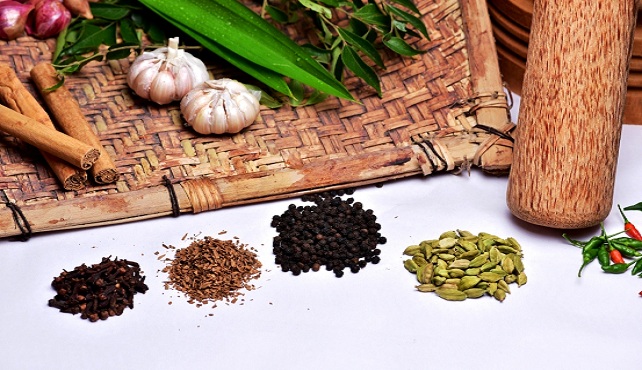CEYNDULGENT and the Ceylon Spices; in the silk route…

Sri Lanka, previously known as Ceylon, lies on the historic Maritime Silk Route from China and has for many centuries been an important link in this trade route. For centuries spices from Sri Lanka have been much valued. Many travellers, such as Marco Polo, who travelled along the spice route described Ceylon as the Isle of spices.
The spice routes are the network of sea routes that link the Far East to the Middle East, and from then across the Mediterranean to Europe. For centuries travellers from different cultures have visited Sri Lanka to obtain spices.
For nearly five hundred years, the Portuguese, the Dutch, and the British have found the allure of spices to be irresistible, and have been attracted to Sri Lanka. Spices were a profitable commodity, and among the goods traded in these trade routes, spices from Sri Lanka have always been much valued. Cinnamon, cardamom, pepper, cloves and nutmeg are some of the important spices from Sri Lanka that were traded.
Ceylon cinnamon or ‘true cinnamon’ is native to Sri Lanka. It is made of the inner bark of the Cinnamomum zeylanicum or Cinnamomum verum tree. The old botanical name zeylanicum derives from Sri Lanka’s old name Ceylon. Cinnamomum verum in Latin means true cinnamon, and is the much sought after variety of cinnamon due to its sweetness and its distinctive aroma. It is considered by many culinary experts to be of superior quality. The unique properties of this spice come from its essential oils and compounds, particularly cinnamaldehyde.
Cardamom is the seed obtained from the Elettaria cardamomum plant. Black pepper is the fruit of Piper nigrum. Clove is the flower bud from the Syzgium aromaticum tree, and nutmeg is the seed of the Myristica fragrans tree.
A spice is usually a tropical herbal plant or some part of it that is valued for providing colour, aroma and flavour to food. Spices can improve the palatability and the appeal of food, while piquant flavours stimulate salivation and promote digestion. Spices are often used as a condiment in cooking and also in confectionary, cosmetics, fragrances and medications.

Ceyndulgent’s story began in Sri Lanka amongst friends bonded by ‘noble friendship’ to form a company, and to share the goodness of pure Ceylon spices in Sri Lanka and with our friends living overseas. Now we extend our friendship to the world with ‘mettā’ or loving-kindness. We understand the natural herbal qualities of aromatic Sri Lankan spices and their ability to provide health benefits uplifting a healthy lifestyle.
We aim to provide authentic Ceylon spices to the world. Our purpose and intention is to share the goodness of authentic Ceylon products fresh from the plantations of origin directly to end users. The Ceyndulgent team takes the utmost care to preserve the natural goodness of spices from plantations in Sri Lanka.
Ceyndulgent represents ethical spices. The Ceyndulgent team is committed to serve the Island nation of Sri Lanka, and its retained profits will fund and uplift the health of the people living in the most inadequately resourced areas of Sri Lanka.
We aim to shorten the value chain and to bring you authentic products directly from the plantains in Sri Lanka. Ceyndulgent Ceylon Spices believes in building a strong foundation for an enduring company striking a balance between long-term profitability and a social conscience.


